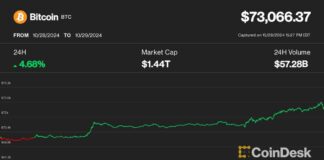For a long time, the possibility of the creation of a private league coming to disrupt European football, outside the governance of “official” bodies, was akin to the creature of Loch Ness: we imagined it lurking in the depths, while remaining convinced of its non-existence. But such a competition, semi-closed (that is to say with a certain number of clubs guaranteed to participate regardless of their results at national level) and trampling on the flowerbeds of the Union of European Associations de football (UEFA), was indeed announced with fanfare, in April 2021.
If this Super League project, carried by twelve of the biggest clubs in Europe, fell apart in less than forty-eight hours following a popular, then institutional outcry, it did not completely evaporate. He reappears on the judicial scene.
Seized in May 2021 by a judge from Madrid – himself questioned by European Super League (ESL), the company behind the Super League project – the Court of Justice of the European Union (CJEU) in Luxembourg is called upon to to address, during a hearing scheduled for Monday 11 and Tuesday 12 July, a substantive issue: by regulating European football, by organizing continental competitions and by wishing, in this case, to sanction clubs on the initiative of the competition that wants to compete with the Champions League, is UEFA ‘abusing its dominant position’?
Judges and parties
For Real Madrid, FC Barcelona and Juventus Turin, the three clubs having refused to abandon their project (unlike the nine other secessionist clubs, who have fallen into line), the case is clear. By threatening heavy penalties on players and clubs that would have taken part in this Super League, UEFA, like the International Football Federation (FIFA), also summoned before the CJEU, were judges and parties and abused their monopoly situation. What the European treaties prohibit.
On the other hand, UEFA – defended by two specialists in European law, Denis Waelbroeck and Donald Slater – emphasizes the defense of its sporting model, based on open competitions accompanied by a redistribution of revenue to sport. amateur. Backed by the support of the President of the Council of Europe and close work with the European Parliament, particularly around the implementation of its new financial regulations, UEFA hopes to see this model emerge strengthened from this examination by the CJEU.
Private Skating League
In addition to the question of the Super League, the Court will host another hearing on Monday morning which could prove crucial on the question of the governance of sport in Europe. On appeal, the CJEU will examine the dispute between two Dutch speed skaters and the International Skating Federation (ISU).
The latter had threatened to ban, potentially for life, the two athletes if they took part in a competition organized outside the aegis of the ISU. Killed in the bud, this South Korean private league project did not see the light of day, but the athletes believe that the fact of having only the Court of Arbitration for Sport (CAS) in Switzerland as their only avenue of challenge , is contrary to European law.
Although the two cases are not directly linked, the European court has chosen to combine them. The two cases will be presented before the same court composed of 15 judges – the Grand Chamber at the CJEU –, with the same judge-rapporteur (the Czech Jan Passer) and the same advocate general (the Greek Athanasios Rantos). This concentration of means is also observed in the preparatory questions sent by the Court to the various parties: according to information from Le Monde, four of them are common to both cases.
For the promoters of the Super League, the question posed goes beyond their own case and football, while competitions competing with federations are flourishing in many sports: in basketball, with the EuroLeague, in swimming, with the ISL circuit ( International Swimming League), launched in 2019, or in golf, with the LIV Golf Invitational Series, inaugurated in June. According to them, it is a question of setting the limits of the power of UEFA and FIFA. What the CJEU did in 1999 with the International Automobile Federation (FIA), ordering it to limit its role to that of a sports regulatory body, in order to avoid conflicts of commercial interest.
Notable fact: the supporters of this Super League have notably enlisted the services of Belgian lawyer Jean-Louis Dupont, one of the lawyers behind the Bosman judgment in 1995: a decision which had strengthened the rights of footballers by allowing them to be released at the end of their contract and by authorizing their free movement.
Real, Barça and Juve
Pending the decision of the CJEU, UEFA froze, in June 2021, the disciplinary procedure opened against the three flagship clubs of the Super League. Recent winner of the Champions League, Real Madrid (as well as its two allies, FC Barcelona and Juventus Turin) thus remains, theoretically, under the threat of exclusion from European competitions.
The nine other signatory clubs of the secessionist league, which had finally given up the project in the space of a few hours in the spring of 2021 – starting with the six English teams, under pressure from their fans – have returned to the bosom of the UEFA, in exchange for lighter sanctions from the European body.
In reality, the Super League still remains composed of its founding members: they remain bound by the contract they signed with ESL in the spring of 2021, learned Le Monde. Only Inter Milan, which had included in its contract a clause implying the validation of entry into the competition by the shareholders of the Lombard club, which did not take place, was able to disengage.
If the CJEU’s upcoming decision turns in their favour, nothing will prevent the Super League promoters from relaunching a project whose format they have since evolved to break away from the “closed league” accusation. “In the same way that the Earth is flat, they still think that the Super League exists,” quipped UEFA President Aleksander Ceferin in an interview with JDD in February. Expected at the end of 2022 or the beginning of 2023, the decisions of the highest European judicial body could give the beginning of an answer.

















